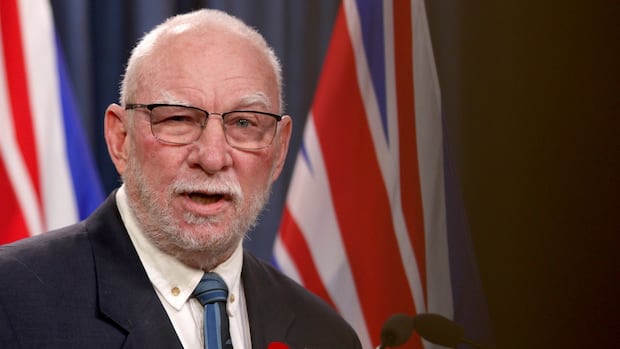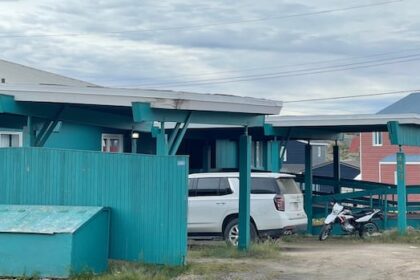British ColumbiaLarry Campbell has been named by the province as its latest go-between for Vancouver’s poorest neighbourhood, as it seeks to improve the quality of life for residents, workers and visitors of the Downtown Eastside.Province says six-month contract with Campbell, a former senator, meant to address systemic challengesChad Pawson · CBC News · Posted: Sep 29, 2025 2:26 PM EDT | Last Updated: 1 hour agoLarry Campbell, pictured in Victoria in November 2021, will now advise the province about how to overcome problems of housing, addiction and crime and Vancouver’s Downtown Eastside neighbourhood. (Chad Hipolito/The Canadian Press)A former Vancouver mayor has been named by the province as its latest go-between for Vancouver’s poorest neighbourhood, as it seeks to improve the quality of life for residents, workers and visitors of the Downtown Eastside.Larry Campbell, 77, was Vancouver’s mayor from 2002 to 2005, and formerly a police officer, provincial chief coroner and Canadian senator.”Our government is determined to deliver better outcomes for this community at the heart of Vancouver,” said Christine Boyle, minister of housing and municipal affairs, in a statement.”I’m looking forward to working with Mr. Campbell as he helps bring all our efforts together and all partners to the table to improve quality of life for everyone in the Downtown Eastside.”Housing Minister Christine Boyle, seen here in July 2019, said in a statement that the province was committed to deliver better outcomes for the Downtown Eastside. (Ben Nelms/CBC)The Downtown Eastside (DTES) is one of Vancouver’s oldest neighbourhoods and is associated with “many complex challenges including drug use, crime, homelessness, housing issues, unemployment, and loss of businesses in the community,” says the city on its website.Campbell’s appointment is meant to help the province liaise between government and non-government organizations to align them over public policy meant to help with housing, mental health and addictions.A long stretch of the Downtown Eastside is a 30km/h speed zone to ensure safety in the area. (Ben Nelms/CBC)The statement says his focus will be “co-ordinating and advancing” improvements for people, public spaces, infrastructure, health care, housing and economic development.”Bringing my experience and relationships to this role, we will advance housing policy that meets local needs, and reduce barriers to strive for seamless care for our unhoused neighbours, especially women and Indigenous people, and those with complex mental health and addictions,” Campbell is quoted as saying in the provincial statement.His contract is to last for six months, from Sept. 29 until March 31, 2026. The compensation to be paid to Campbell was not disclosed.First DTES adviser controversyIn May the province changed course over another DTES adviser — a former CEO of Legal Aid B.C. and Ontario attorney general — over criticism the appointment was a political favour and lacked transparency.Michael Bryant was installed in February with little public announcement, for a six-month contract worth $150,000, plus an allowance of $25,000 in expenses.Premier David Eby announced his termination in May, saying he would receive no severance pay. Bryant had been given around $75,000 in compensation up to the time of his departure.Michael Bryant, former attorney general of Ontario, was tapped by B.C.’s premier to be the Downtown Eastside czar in February 2025, but was let go months after secrecy around the appointment brought criticism. (Submitted by Michael Bryant)Eby said at the time that Bryant had met with people living on the Downtown Eastside, leaders of non-profit organizations and municipal politicians.He said Bryant’s work was helpful and had provided a “foundation” for the province to move forward, but that communication over the appointment was lacking.The provincial statement announcing Campbell’s appointment included endorsements and comment from several prominent people involved in public policy and the DTES.Those included Sarah Blyth, executive director of the Overdose Prevention Society, Chris Livingstone, executive director of Aboriginal Front Door Society and Angela Marie MacDougall, executive director of Battered Women’s Support Services.ABOUT THE AUTHORChad Pawson is a CBC News reporter in Vancouver. Please contact him at chad.pawson@cbc.ca.
Larry Campbell installed as provincial adviser for Vancouver’s Downtown Eastside











